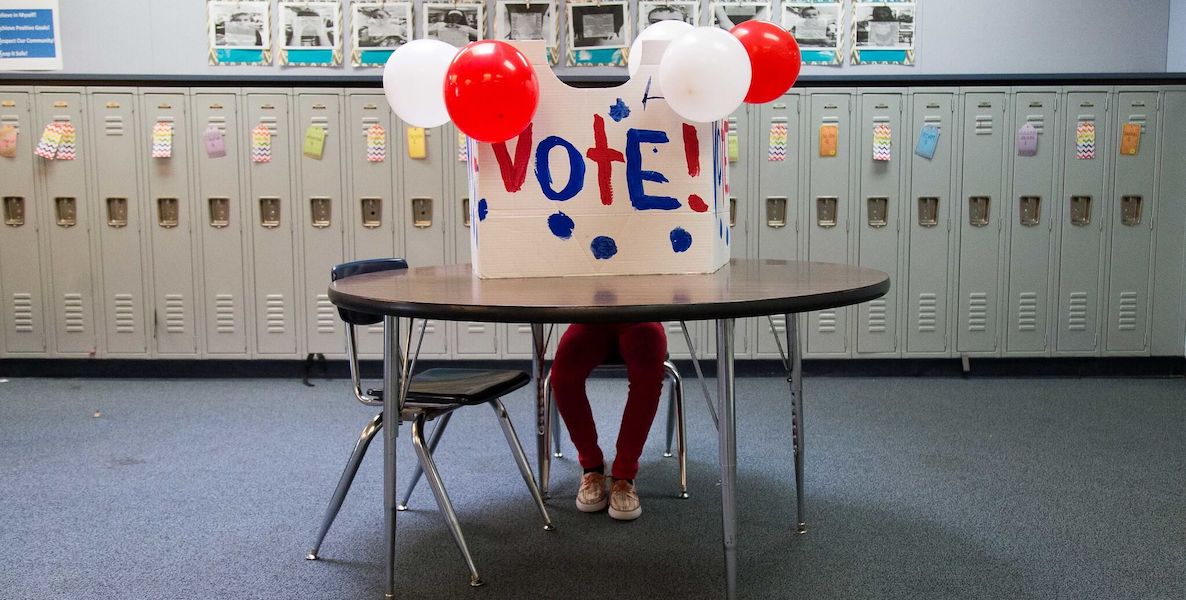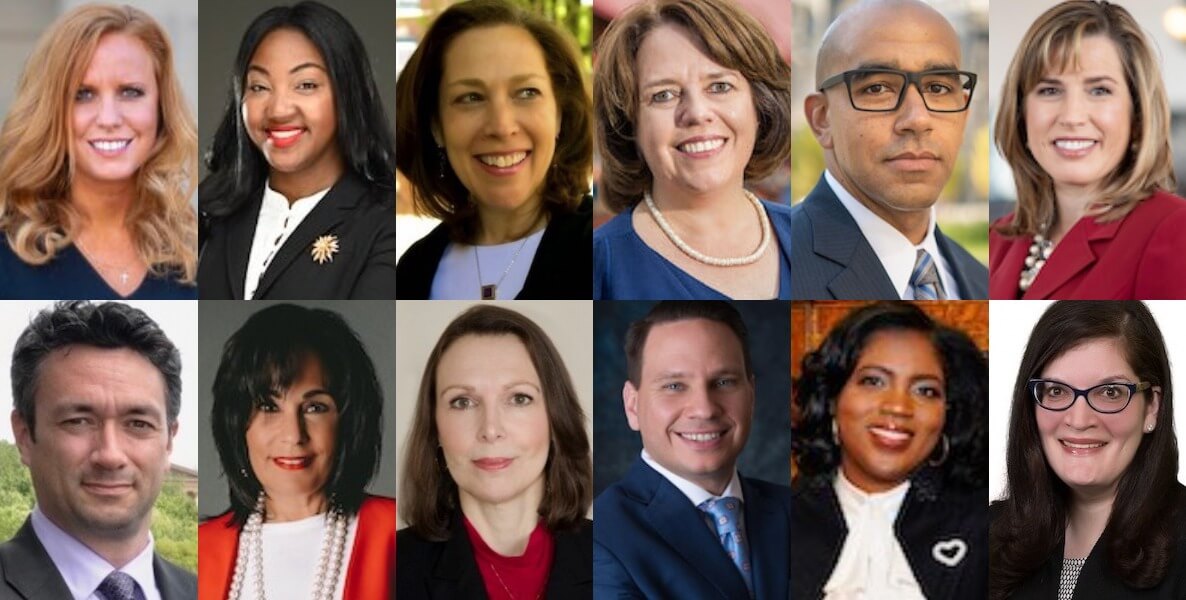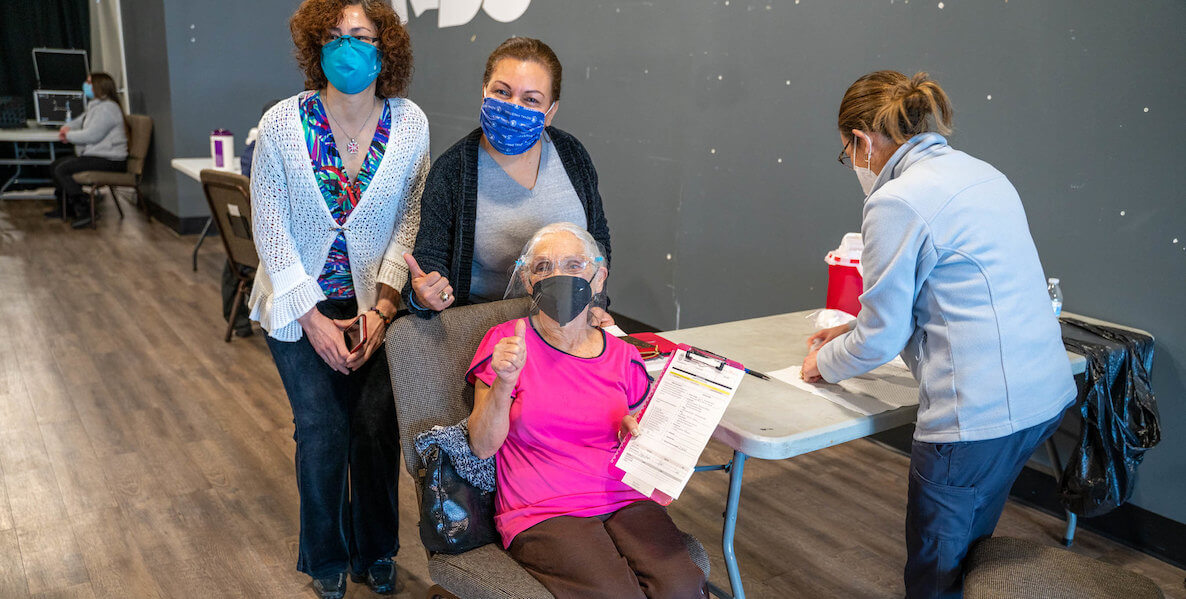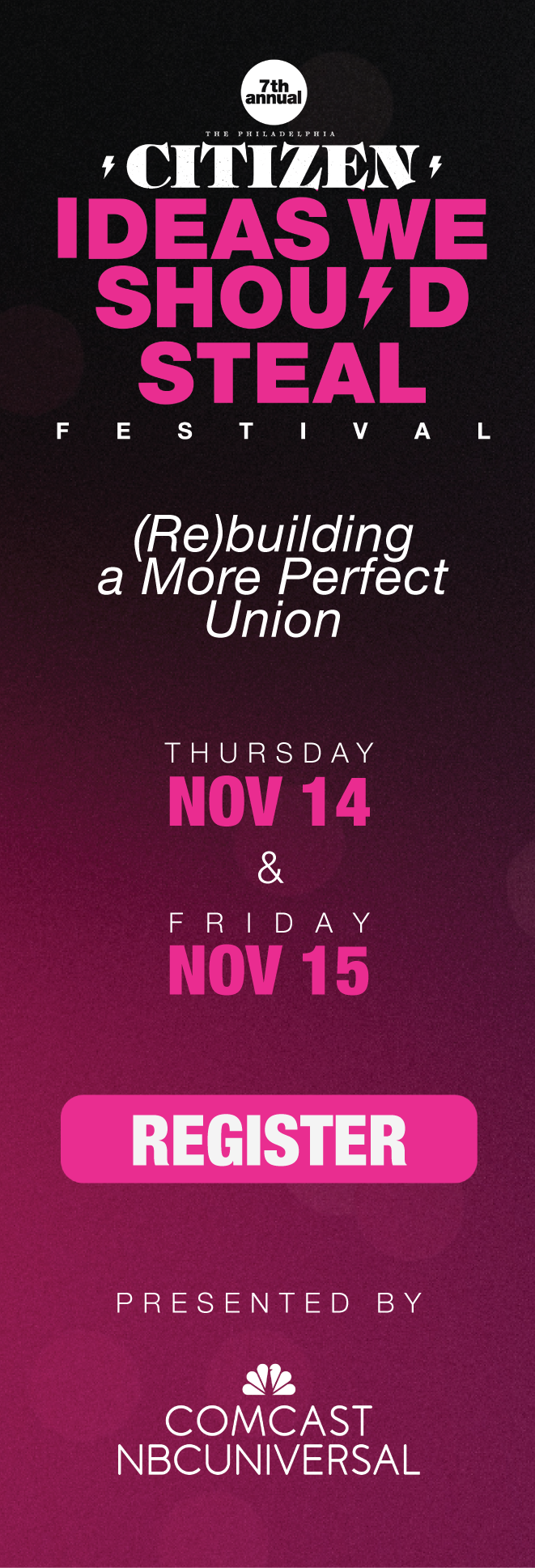It’s only been a few weeks since vaccine eligibility opened up for everybody 16 and older, but already health officials are sounding the alarm that demand for vaccination is plateauing, and there’s more work to be done to get traction among more reluctant residents.
In his Tuesday press appearance, city Health Commissioner Dr. Thomas Farley said that while the large mass clinics have seen their numbers decline, pharmacies and hospitals have seen stronger demand, and that the city will be shifting strategy to get vaccines out to more neighborhood providers. From the Inquirer’s coverage of the press conference:
Vaccination rates by week are decreasing, Farley said, He described a week-by-week decline from the week of April 18, when 112,000 doses were administered in Philadelphia, to the week of April 24, when that number declined to 85,000, and then last week, when it dropped further to 52,000 doses, though that number will likely grow with more comprehensive reporting.
The city’s mass clinics at the Pennsylvania Convention Center and Esperanza, in North Philadelphia, had seen the steepest decline in vaccinations, he said […] City data shows pharmacies and hospitals still sustaining brisk vaccination rates, and Farley said the focus in the coming weeks would be on making vaccination more convenient to access in people’s neighborhoods.
One upcoming event that presents an opportunity for neighborhood-based vaccination clinics is on May 18: Election Day.
While the timing is admittedly a little tight for the Health Department or pharmacies with the election only a couple weeks away, Election Day could present an ideal opportunity to meet a lot of people where they are while they’re waiting in line at their polling places. The Johnson & Johnson vaccine would be ideal for this since it only requires one dose, and there’d be fewer logistical issues without the need to schedule people for a second appointment.
At the same time, this could present a related benefit for Philadelphia: People who show up for the vaccine clinic might also be more inclined to cast their ballot while they’re on site, which could help boost turnout for what is typically a lackadaisical primary election.
MORE ON PHILLY AND THE VACCINES
Would it be worth it to try and get organized in time for Election Day? And is it something the Health Department or pharmacies could pull off?
A big impact without the heavy lift
It is possible that even a few pop-up vaccination sites at certain polling places could make a real difference and vaccinate hundreds of people that day. It’s not going to be like the heyday of the FEMA Convention Center site when they were administering 6,000 vaccines a day, but the standard for what’s significant has downshifted to the point where we should get excited about opportunities to vaccinate 400 to 500 more people, especially those in neighborhoods with low vaccination rates. And it wouldn’t even be a very heavy lift.
There is already an organization, Vote and Vax, that was developed as a collaboration between the Robert Wood Johnson Foundation and SPARC (Sickness Prevention Achieved through Regional Collaboration) as a strategy to distribute flu vaccines. And the RWJF guide to starting a Vote and Vax program suggests the strategy had benefits for reaching some harder-to-reach populations.
In 2008, the Robert Wood Johnson Foundation funded the first nationwide Vote and Vax effort to deliver flu shots at polling places. SPARC provided support to public health agencies across the country, helping them put into operation Vote and Vax clinics in their communities.
On Election Day, the initiative delivered 21,434 influenza vaccinations at 331 polling places in 42 states and the District of Columbia. Almost 70 percent of vaccine recipients were in priority groups, as defined by the Centers for Disease Control and Prevention (CDC), and almost half were “new” flu shot recipients.
Based on this overwhelming success, SPARC will launch a tailored national program in 2016, offering guidance, outreach strategies, materials and technical assistance to providers interested in deploying Vote and Vax in their communities.
They produced a short guide to organizing a successful clinic, and this checklist gives an idea of what goes into it:
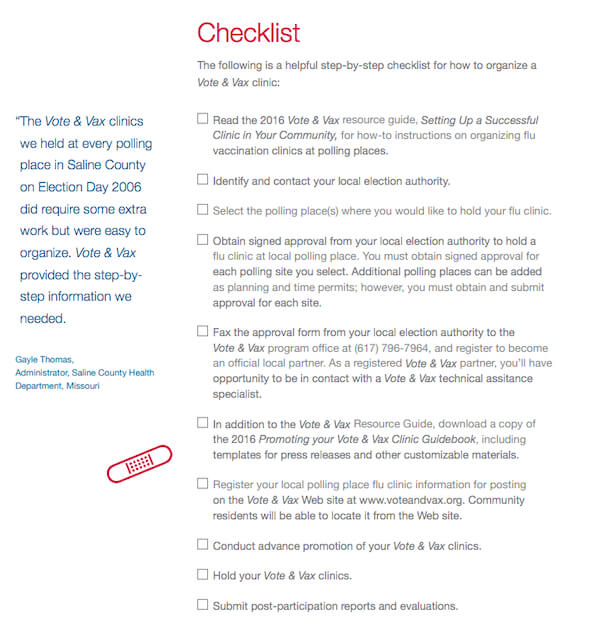
Finding the right polling places
A good way to approach this heading into May 18 would be to look to the city zip codes that have the lowest per-capita vaccination rates, and find a few polling places that serve the most registered voters there.
For reference, each voting division contains about 500 to 1,200 voters. Some polling places only host one voting division, but others can host two or three, and sometimes as many as eight. So within the least-vaccinated areas, you would want to try and find some polling places that cover multiple divisions, or have registered voter numbers approaching that upper bound, and where turnout is generally pretty good. On the vaccination side, zip code-level vaccinations rates range from 25 percent to 71 percent, with the City characterizing the 0 to 30 percent range as the lowest tier.
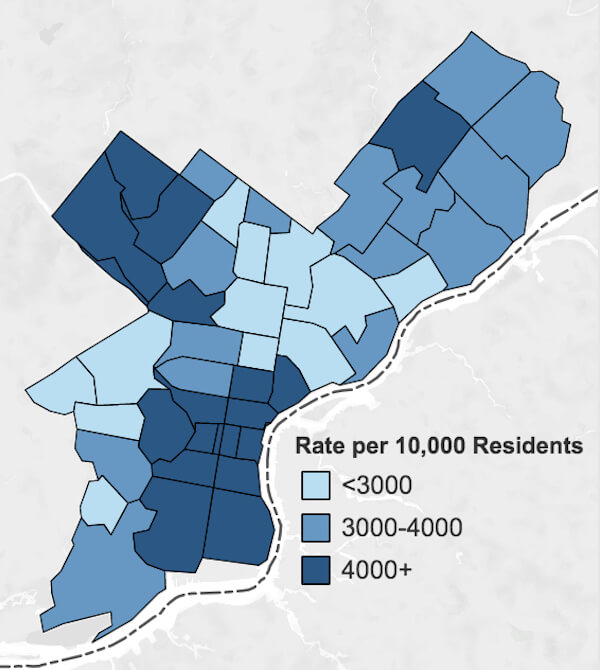
We determined that the highest value polling locations are those which serve at least 2,500 registered voters—a high turnout ceiling—and where at least 200 votes were cast in 2017—a modest turnout floor. We layered the polling places that hit on those two criteria onto a map of the city’s vaccination rates to find locations in zip codes with sub-30 percent vaccination rates.
Through this we identified six geographically-diverse polling locations which cumulatively saw just over 1,900 voters four years ago in zips where only 27 percent of residents are vaccinated, on average. Importantly, all of these sites have the physical footprint required to accommodate a pop-up vaccine clinic. They are:
- Thomas G. Morton Elementary School (63rd and Elmwood streets)
- Bethune Mary McLeod School (Old York Road and Ontario Street)
- Thomas K. Finletter Academics Plus School (Front and Godfrey avenues)
- Benjamin Franklin School (Rising Sun and Cheltenham avenues)
- Andrew J. Morrison School (5111 N. 4th Street)
- West Philadelphia High School (4901 Chestnut Street).
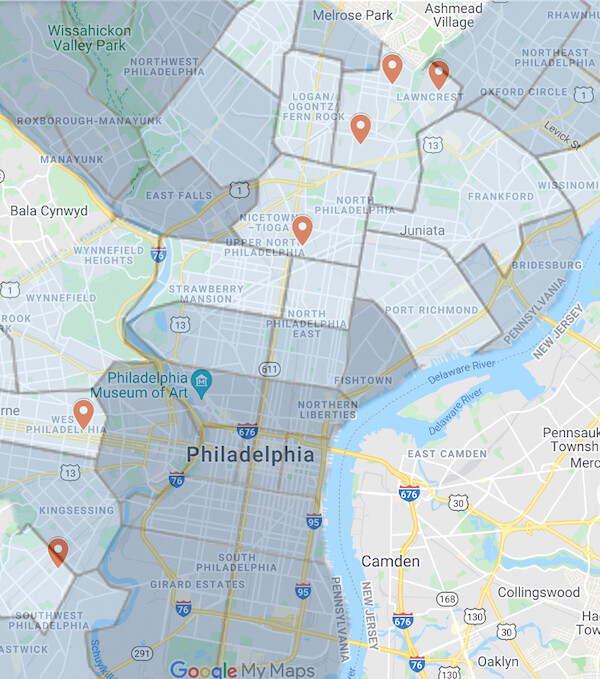
More thorough data analysis might reveal some even higher-value polling places than these, but the point is simply that election data is pretty useful for figuring out where there might be large gatherings of people on Election Day in exactly the places where we need to do the most work to get vaccination rates up. And while the election data is a starting point, it’s also important not to dwell too much on the election aspect of it either, as the pop-up clinics could be open to non-voters in the area too. You’re just likely to be starting out with a bigger base of people.
To be clear, this is not something that the City Commissioners should take on in these last weeks before the election. They already have a big job to do running another vote-by-mail election in addition to all the traditional Election Day operations. But the Health Department could, and should, support the Black Doctors’ COVID Consortium or individual pharmacies in organizing some Vote and Vax opportunities on Election Day as a creative and potentially effective way to reach more of the residents we most need to reach.

Jon Geeting is the director of engagement at Philadelphia 3.0, a political action committee that supports efforts to reform and modernize City Hall. This is part of a series of articles running on both The Citizen and 3.0’s blog.
Make sure you’re all set to vote in the 2021 primary election in Philly
- Our voter guide lays out everyone who’s running for office and more
- Here you can learn about all the judges who will be on Philly ballots
- Have questions about voting? Find answers in our PA voting FAQ.
- Double-check your polling place, learn about mail-in ballot and more quick voting tidbits



